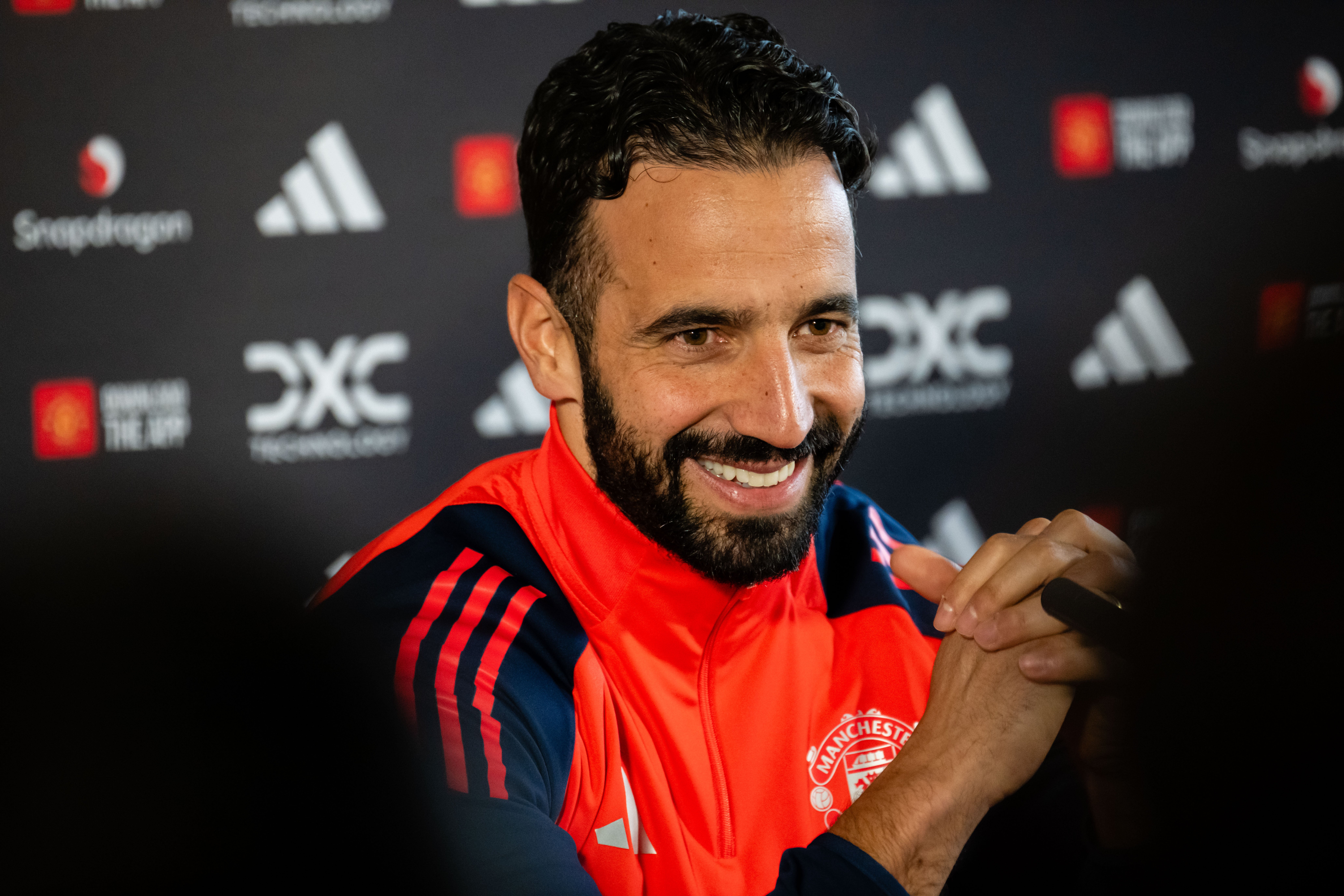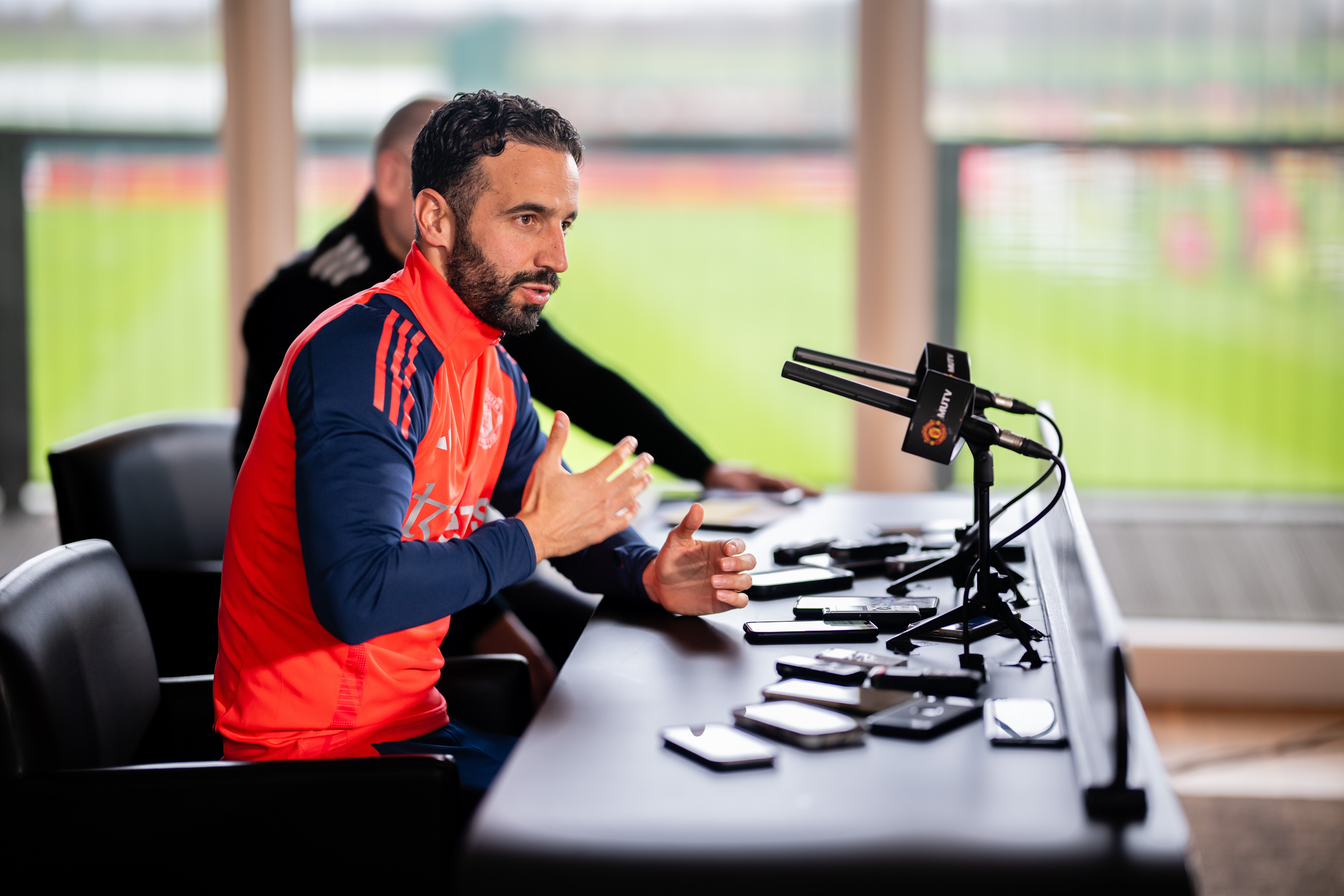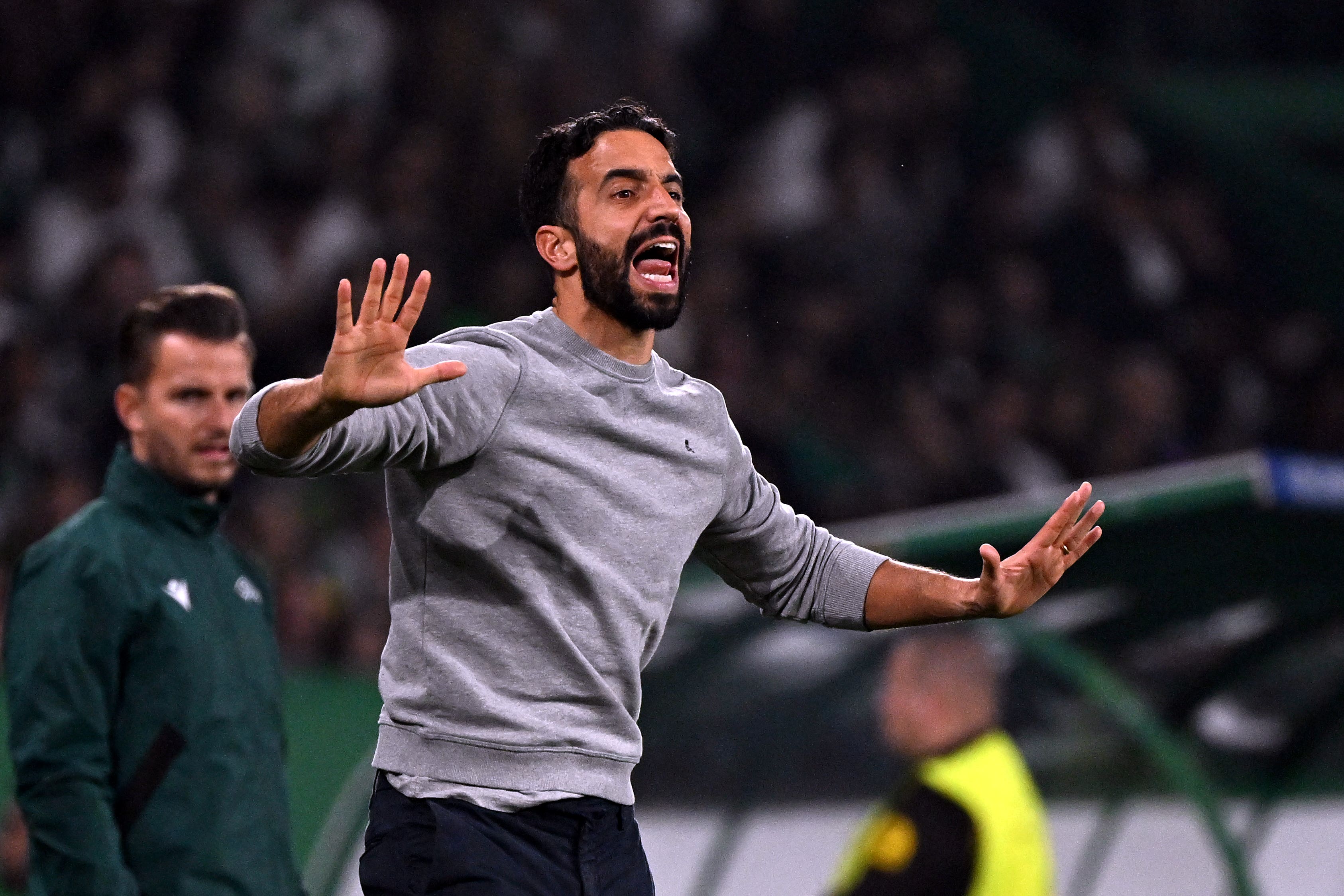Smiling but uncompromising, Ruben Amorim reveals how he will shape Manchester United
At his introductory press conference, Amorim delivered the message that it will be his way or the highway as the Portuguese began to lay down the law at Old Trafford, writes Richard Jolly


Your support helps us to tell the story
From reproductive rights to climate change to Big Tech, The Independent is on the ground when the story is developing. Whether it's investigating the financials of Elon Musk's pro-Trump PAC or producing our latest documentary, 'The A Word', which shines a light on the American women fighting for reproductive rights, we know how important it is to parse out the facts from the messaging.
At such a critical moment in US history, we need reporters on the ground. Your donation allows us to keep sending journalists to speak to both sides of the story.
The Independent is trusted by Americans across the entire political spectrum. And unlike many other quality news outlets, we choose not to lock Americans out of our reporting and analysis with paywalls. We believe quality journalism should be available to everyone, paid for by those who can afford it.
Your support makes all the difference.Ruben Amorim was running through Manchester United’s recent managerial history. “The guys who won everything like [Louis] van Gaal and [Jose] Mourinho,” he said. “New ones who knew the club inside out like [Ole Gunnar] Solskjaer, and one of the best that there will ever be outside the five strongest leagues was [Erik] ten Hag. You have different type of coaches, the same result.”
That result sometimes involved a cup or two, but never a true title challenge. None ultimately succeeded; not by the standards of what Amorim called a “global” club, “still the best” in England. All of which may have deterred many a manager. Old Trafford, arguably, has been a graveyard for them. Brushing aside the suggestion it has become the impossible job, Amorim instead arrived with a belief that he can end the trend of disappointment, with a confidence that did not come across as arrogance.
It is two decades since another wunderkind of Portuguese coaching anointed himself a “Special One”. Amorim came with a message from Mourinho, an open acknowledgement he is influenced by him, yet differentiating himself from his predecessor. There was charisma with less bravado, a coach positioning himself for the future, not yesterday’s man.
“He was European champion, I’m not European champion,” he said. “But I’m a different guy in a different moment, football nowadays is different and I think am the right person in this moment. I am a young guy, I understand the players.”
The reference to youth was instructive. Mourinho and Van Gaal joined when their best days were behind them; there was a case for appointing the Portuguese in 2013 but his peak was in the 2000s, the Dutchman’s in the 1990s. There were superficial similarities with Ten Hag’s profile, but he was in his fifties before he reached United. Amorim is less than three years older than Jonny Evans. He was born after Alex Ferguson had already won the Cup Winners’ Cup with Aberdeen, and is less than half the great Scot’s age. There is an argument that Van Gaal and Mourinho were the right men at the wrong time. Amorim seems a more contemporary figure. He is a new generation; not so much post-Ferguson as post-post-Ferguson.
“Call me naive,” he said, with the assurance of a man who is unlikely to be described as such. “But I truly believe I am the right guy in the right moment. I could be wrong but the world still will turn, the sun will rise again, I don’t worry about that. I truly believe I’m the right guy for this job. I’m a little bit of a dreamer, and I believe in myself, I also believe in the club. I think we have the same idea, the same mindset.”
He contrived to speak the language of his new employers, the first appointment of United’s new co-owner making a break with the club’s recent past. “We will try to do it our way, Ineos way, and my way,” he said. His job title is head coach, rather than manager, but he underlined his authority.
Take, for instance, his view of recruitment which, as United spent some £600m under Ten Hag, much of it unsuccessfully, and Jim Ratcliffe has brought in Dan Ashworth as sporting director and Jason Wilcox as technical director, feels both pivotal and a potential bone of contention. “I think it’s all together but the final word should be the manager,” Amorim explained. “Not just because it’s your right but your responsibility. Because, in the end, the result is [down] to me.”

Which was a contrast to Ten Hag’s perennial complaints about injuries as he tried to eschew culpability for setbacks. It was not the only contrast. Early improvement could come from forming a more cohesive side, one with a commitment to tracking back that his forwards may take note of. “I think we lose the ball too often and we have to keep the ball,” he said. “We have to be better running back. I think that is clear for everybody.”
He is a more convincing communicator, more persuasive than his predecessor; where Ten Hag could be abrupt, halting and direct, Amorim was fluent, exuding a certain style. He needs players with bigger medal collections than his own – albeit from former clubs – to buy into his approach. “It’s the only thing I ask: hard work and you have to believe in the new idea,” he said.
That idea is based around three central defenders and wing-backs. It forms another shift from United’s identity; the back four has been the default system for every manager, a brief spell under Van Gaal apart. Amorim is smiling, but uncompromising.
“I’m not saying these are the best ideas, but it’s our way of seeing football,” he said. “It’s not evolution or revolution. As a coach, you have to choose one way or another. I choose always 100 per cent our way. I prefer to risk a little bit but to push in the first moment. Since the first day, I believe so much in our way of playing; [the players] will believe, too. So there is no second doubts, no second way.”

It is his way or the highway. “We will adapt some players because we don't have the right profile,” he said. “This team was built for a different system. Everybody wants to play now. If they have an opportunity to play as a goalkeeper they will play in the moment. In the future, they will see. But they are open to change some positions.” He is bringing change, and at speed. His contract only lasts until 2027.
“For me it is perfect, because in two years' time you can work out whether I’m the ideal coach for this project or not,” he said, deriving a positive from it. It may take longer to win the league, he explained, but not to work out if he is the manager to back for the long term. By the time that contract ends, he will still only be 42, still younger than Ferguson was when he came to United.
The right man in the right place at the right time, or naive and a dreamer? Ruben Amorim has two years to deliver an answer. But in the way he presented himself, he sounded as if he already knows it.



Join our commenting forum
Join thought-provoking conversations, follow other Independent readers and see their replies
Comments